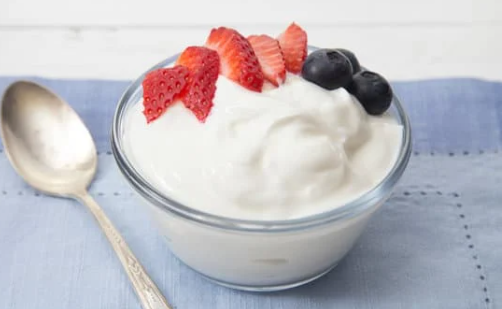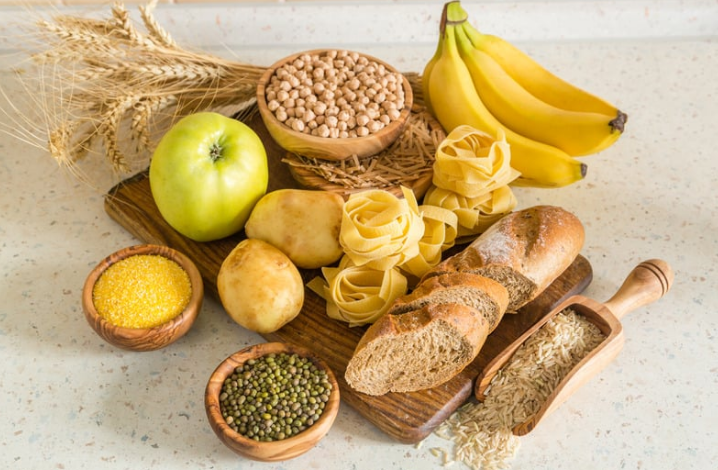When not even your
Rule Breakers
1. Don't skip breakfast.
Experts fall on both sides of this highly debated rule. Breakfast has long held the distinction as the "most important meal of the day", with studies linking it to everything from better performance in school to regulating blood sugar to reducing heart disease risk—but many people have found that abstaining from eating in the a.m.
Running coach Kyle Kranz is a big fan of intermittent fasting (IF
You'll also hear claims regarding IF and longevity, cancer cures and dementia treatment. While preliminary research is occurring in these other areas, there is far from enough research evidence to make medical treatment recommendations.
2. Follow your diet to the letter—or else.
In a weak moment, you give in and scarf down a piece of cheesecake, a bag of potato chips, a pint of ice cream or maybe all of the above. It's easy to think, "Oh well, I've blown it now, might as well give up and order pizza," but ACE-certified personal trainer Shane McLean warns that this all-or-nothing mentality can lead to an endless cycle of yo-yo dieting. "Everyone slips up and nobody is perfect," he says. "Just put it behind you, forget about it and move on."
Instead of trying to stick to an unrealistic diet, Ken Immer, president of Culinary Health Solutions, recommends making a list of your favorite "non-negotiable" foods that have a high potential of causing breakdown and then planning them into your diet. "For instance, if ice cream is your thing, try eating an apple before you eat the ice cream," he suggests. "This will make you feel fuller because of the fiber and pectin in the apple, and you'll be less [likely] to overeat, plus, you'll have eaten an apple! This will let you enjoy the ice cream and reduce anxiety about missing a favorite food."
3. Take one cheat day per week.
It sounds like a delicious concept: Stick to a strict diet all week, then pick one day when you can go hog wild and eat unlimited amounts of whatever your taste buds desire. The problem is, people who maintain a consistent calorie intake are more likely to maintain their weight than those who eat perfectly Monday through Friday and then abandon all rules on the weekend, says fitness coach Jen Mueller.
Toby Amidor, M.S., R.D., a nutrition expert and author of the upcoming "The Healthy Meal Prep Cookbook," is not an advocate of having cheat days, and it’s one rule she tells her clients to break. "Weight loss should be about incorporating higher-calorie foods into an overall healthy lifestyle," she says. "Instead of taking one day a week to eat anything and everything, learn to eat a small amount regularly. For example, if you’re a chocoholic, enjoy one ounce as a dessert three or four times a week."
4. Don't eat after 8 P.M.
Nighttime eating gets a bad rap, but fitness trainer Dani Singer believes this rule is often misinterpreted. "From a weight-loss perspective, 100 calories at midnight is the same as 100 calories at lunchtime," he says. "The rule's only benefit is in limiting total daily calories. If you tend to snack late at night, then enacting this rule might drastically reduce your caloric intake, and therefore cause you to lose weight."
Registered dietitian Becky Hand agrees that it's not necessarily the time of day that makes evening eating bad, but the fact that many people tend to overindulge after the sun goes down. "A morning calorie is metabolized in basically the same way as an evening calorie," she says. "Eating in the evening is a problem for many, not because of the way food is metabolized, but because of the quantity of food that is often eaten."
5. Go on a cleanse.
Cleanses or "detox diets" can be effective lose-weight-quick schemes, but weight-loss therapist Dr. Candice Seti says they don't represent real or sustainable weight loss—and could even be detrimental in many ways. "Cleanses usually create a pretty severe nutrient deprivation, as your restricted intake limits the nutrients you are taking in," she explains. "There is also the possibility of damage to your heart. Extended or repetitive use of crash diets can create electrolyte damage within your body, which results in a weakening of blood vessels and cardiac stress."
Ironically, Dr.
Hand agrees that cleanses and detox diets are not healthy ways to lose weight. "Although they are not necessarily unsafe, they are far from being nutritious and healthy for the body, and they are a terrible way to lose weight," she says. "Your body is designed to purify itself. When you are healthy—eating a healthy diet and exercising regularly—your liver and kidneys will do the job they're supposed to do."
6. Use the same diet or workout plan that worked for your spouse, co-worker or friend.
Recommendations are helpful for finding recipes and roofers, but not so much for weight loss. "We are 'bio-individuals,' and what works for one person may not work for another," says health coach Liza Baker with Simply: Health Coaching. The same goes for following a diet or workout that worked for you at a different time of your life—what was effective
Take into account your age, recent lifestyle changes and big events. For instance, if you’ve recently had a baby, started a new job or have an injury that has impacted your activity level, make sure you are taking the time to reevaluate all facets of your workout and diet routine. To help you deal better with life
7. It doesn't really matter what you eat, as long as you count your calories.
A calorie is a calorie, right? Not exactly. While you may be able to eat a box of donuts for dinner and stay within your target calorie range for the day, you’ll likely be hungry an hour later and not feel so great when your blood sugar comes crashing down," says Mueller. Plus, when you load up on "junk calories," your body isn’t getting all of the nutrients it needs for optimal performance. When counting your calories, make sure the bulk of them come from nutritious foods that will keep you fuller longer and more satisfied.
8. Spend more time in the gym.
Daily exercise is a crucial piece of the weight loss puzzle, but the focus should be on quality of movement over quantity. "Moving more could be interpreted as exercising more, but more time in the gym does not always translate to more pounds lost," says personal trainer Kasey Shuler. Instead of marathon sessions on the treadmill, she recommends focusing on interval-style training, such as high-intensity interval training (HIIT).
"Doing sprint intervals, such as jogging for one minute and sprinting for 30 seconds on repeat for 20 minutes, not only burns more calories than jogging, but also increases speed, power and cardio output, allowing your body to burn energy more efficiently during the day," she says.
9. Trust the package.
If it sounds too good to be true, it probably is. Plenty of foods and supplements are marketed with misleading health claims. By removing sugar or fat from their products, manufacturers promise to deliver the best of both worlds—but that temporary gratification comes at a cost. "The removed fat and sugar are almost always replaced with ingredients that are as bad as or worse than the originals," says Dr.
10. You need a hard, sweaty workout to lose weight.
Not every exercise session has to include running, spinning or grueling boot camp sessions. Fitness instructor Irena Miller recommends yoga to complement intense cardio and weight lifting sessions. "When you're exhausted and stressed, try doing a little yoga as a way to lower the cortisol pumping through your body," she suggests. "Think of it as an active recovery day to help alleviate muscle soreness [and] tightness and for injury prevention."
In addition to yoga, you can lower cortisol levels by going for a walk, practicing Tai Chi, doing deep breathing and using other stress management techniques.
11. Weigh yourself often.
It might seem like daily weigh-ins are the best way to measure your progress, but spending too much time on the scale can be a morale crusher. Many of the positive effects of diet and exercise won't immediately reflect in that number
Instead of honing in on the scale, Immer recommends focusing on all the other ways you might be getting healthier, such as better sleep, improved complexion, better regularity, improved mood and focus, or increased energy levels. "Bringing attention to how your clothes feel on your body is also important—just because the number isn’t changing doesn’t mean your body isn’t changing," he says. "Check in weekly with these and other biofeedback markers that are important to you, and you might be surprised what improvements you notice."
When you think you're doing everything













